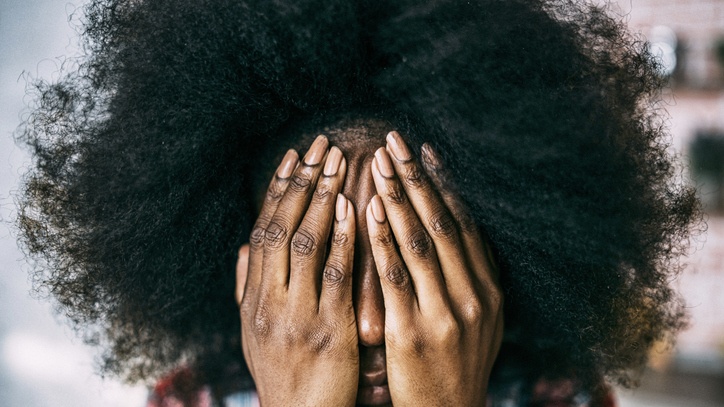The coronavirus has upended the global economy and disrupted personal finances. What's doubly devastating about the pandemic is that those who are already marginalized are seeing even more negative consequences. New research from a nonprofit organization centered on uplifting women, Lean In, takes a look into how women of color, particularly, are being disproportionately affected by COVID-19.
The surveys were taken from a total sample of 2,986 adults living in the United States.
1. Black women are the primary candidates to lose their job.
With more than 16 million people filing for unemployment in the last three weeks, Black women are twice as likely as white men to be laid off, furloughed, or have their hours or pay cut because of the 2020 coronavirus pandemic. Lean In reported that 54% of Black women experienced one or more of these hardships, compared to 27% of white men.
2. Women are more concerned about their future financial stability.
Perhaps unsurprising considering that Black women are more likely to lose their jobs, women who are still employed aren’t resting easy about their security. The report showed that while everyone may be worried about job loss, concerns about reduced pay or finding a new job were highest among women of color. Black women are especially worried about getting laid off in comparison to white men (35% vs. 23%), about having their hours cut back (27% vs. 17%) and about trying to find a new job (31% vs. 13%).
3. Women have less of a safety net.
The report found that without income, women were twice as likely to report that they would not be able to afford basic necessities, with Black women being three times more likely than white men to express this concern.
4. Women are worried about affording basic needs.
More than ever, people are wondering how they’re going to make ends meet. Basic necessities have become a luxury. Women are more likely than men to worry about how they're going to pay for housing, groceries, or health care for themselves or their families. Black women are twice as likely as white men to agonize over paying the rent (60% vs. 24%) or affording groceries to sustain themselves (43% vs 18%).
5. These numbers are a long time coming.
This financial crisis isn’t new; it’s years in the making. COVID-19 has only highlighted the historic fractures in a broken system. Black women’s pay gap across a variety of professional industries has been growing for years, as Blavity previously reported. Black women make 61 cents to every $1 a white man makes. According to the report, two-thirds of minimum wage workers are women and are in danger as service industries shut down to help slow the spread of the virus.
6.
The data leaves room for an error margin of only 2 percentage points, and data was weighted for age, race, sex, education and geography using the Census Bureau’s American Community Survey. The report is a part of ongoing research that the organization will be conducting on the impact of the coronavirus on women.
